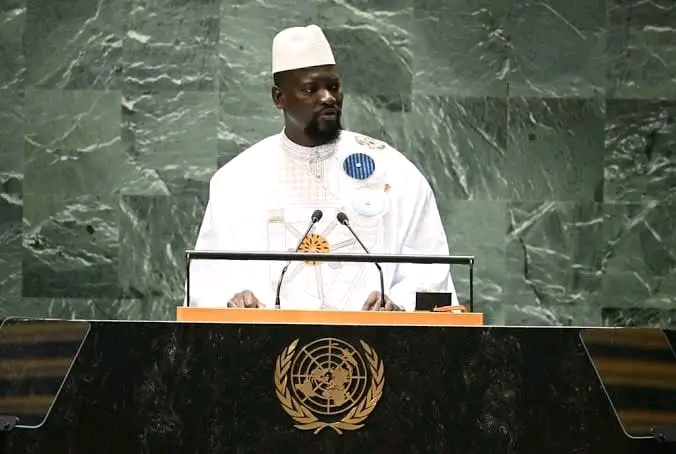By: The Editor-in-Chief
Mamady Doumbouya, Guinea’s military leader, addressed the United Nations General Assembly on Friday with a striking message that challenges the status quo regarding democracy in Africa. His statement that the Western model of democracy does not work for the continent demands our attention and introspection.
In his speech, Doumbouya did not mince words. He emphasized the need to cease lecturing and treating African nations with condescension, asserting that Africans are mature enough to design their own governance models. He underscored a prevailing sentiment that the Western democratic template may not be universally applicable to the diverse and intricate political landscapes of Africa.
The issue he raised is not a new one. For decades, scholars, policymakers, and African leaders themselves have grappled with the question of how to adapt democratic principles to suit the unique contexts and challenges faced by African nations. While democracy is fundamentally rooted in the principles of representation, participation, and accountability, its practical implementation can vary significantly.
Doumbouya’s remarks are a reminder of the complex dynamics at play. Africa is a vast continent, rich in cultural, historical, and political diversity. The “one-size-fits-all” approach to democracy has often encountered resistance or yielded mixed results. It is imperative to acknowledge that democracy’s successful implementation relies on a deep understanding of each nation’s specific circumstances, rather than imposing a rigid framework.
The military leader’s statement comes against the backdrop of political upheaval in West and Central Africa, where multiple coups have occurred in recent years. These events reflect a broader trend of dissatisfaction with the established order and a desire for political change.
While the argument against the Western model of democracy may have merit, it is essential to recognize that the conversation should not be one of binary choices. Rather, it should focus on tailoring governance systems to meet the unique needs and aspirations of individual nations.
Africa’s challenges are not homogenous, and its solutions must reflect this diversity. Effective governance models should prioritize local ownership, inclusivity, and adaptability to ensure that they resonate with the citizens they serve. Achieving this balance between preserving democratic values and acknowledging regional specificities is a complex endeavor that requires thoughtful dialogue and collaboration.
Doumbouya’s declarations are a call to action for both African leaders and the international community. It is an invitation to rethink governance paradigms, engage in meaningful discussions, and develop innovative approaches that empower African nations to shape their destinies.
In the end, the ultimate goal should be to ensure that governance systems in Africa, whether influenced by Western democracy or uniquely tailored, prioritize the well-being, prosperity, and democratic rights of its citizens. It is a challenging endeavor, but one that is worthy of our collective commitment and attention.


